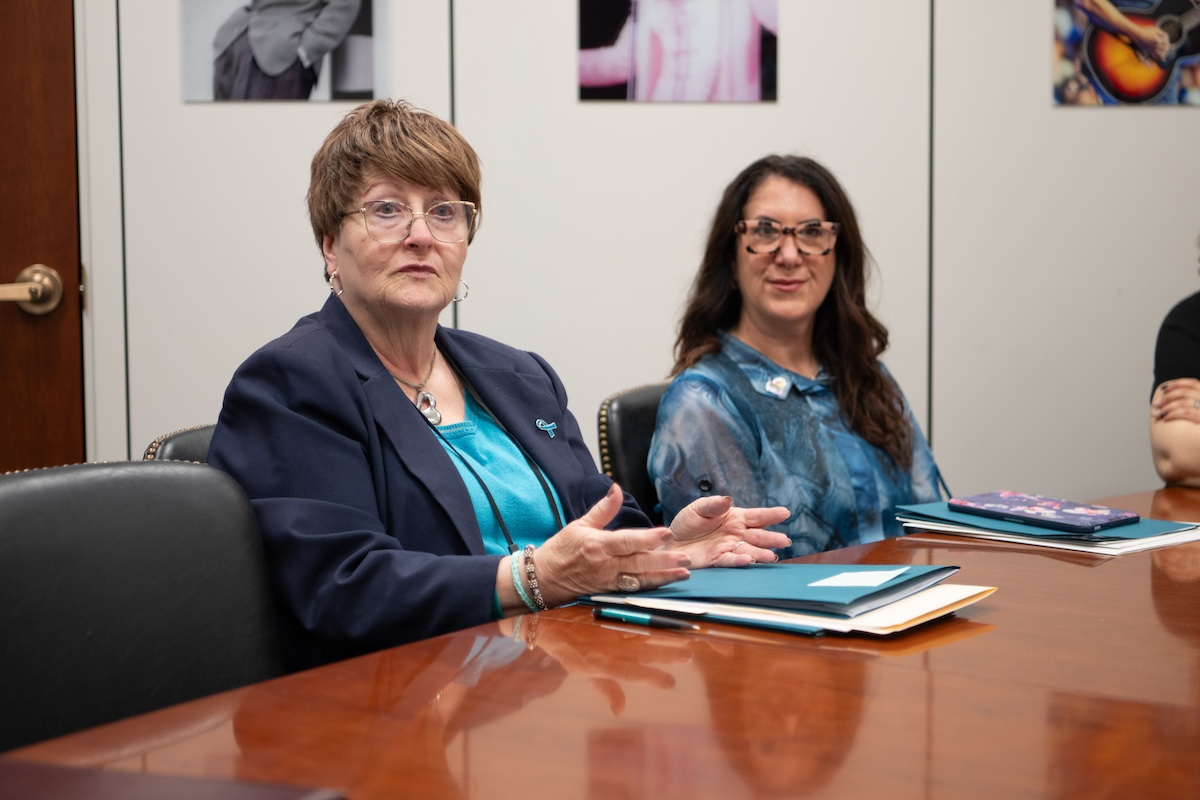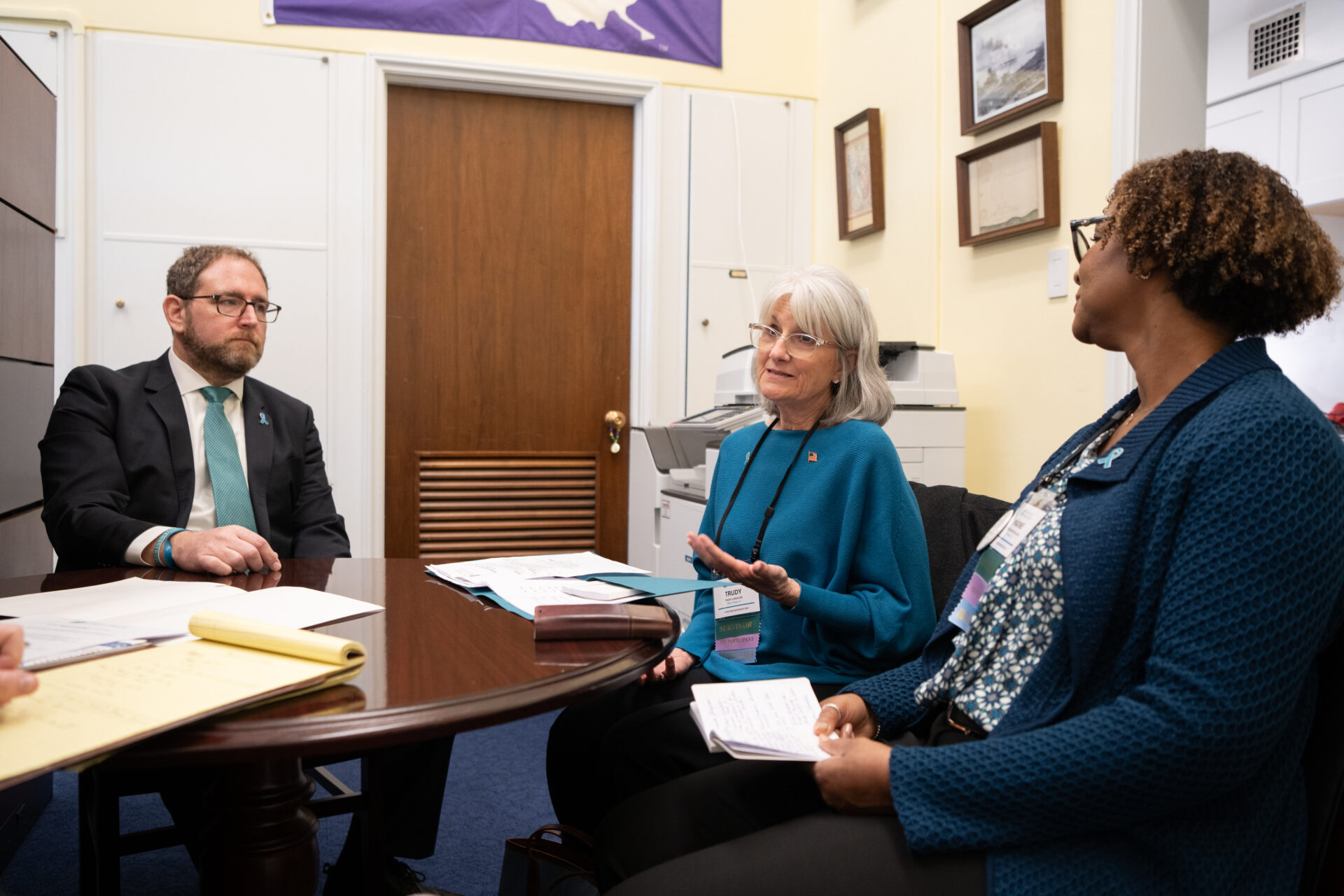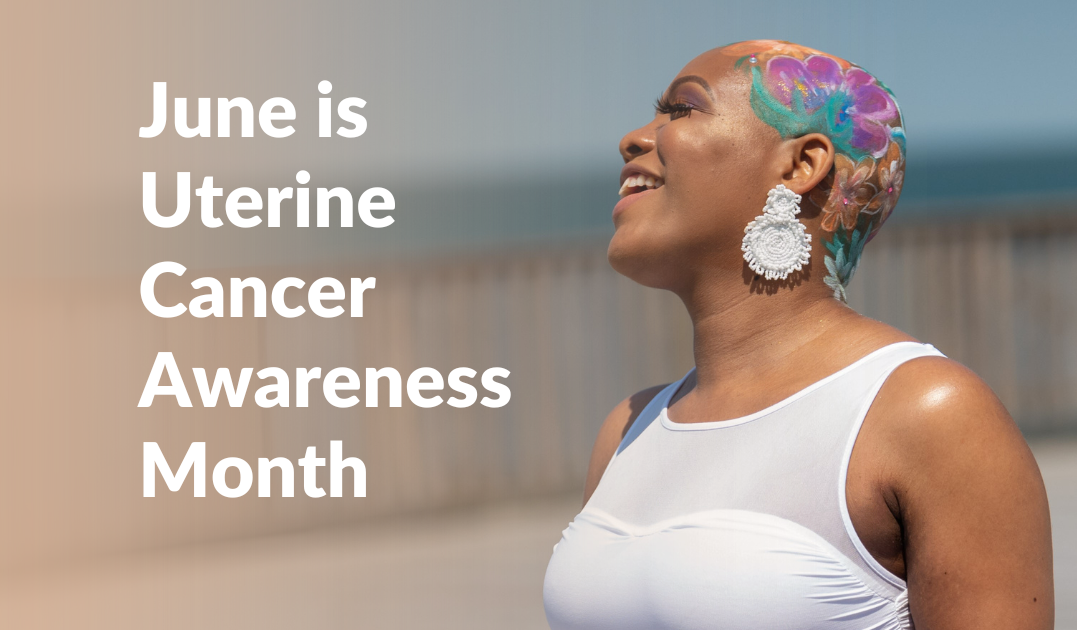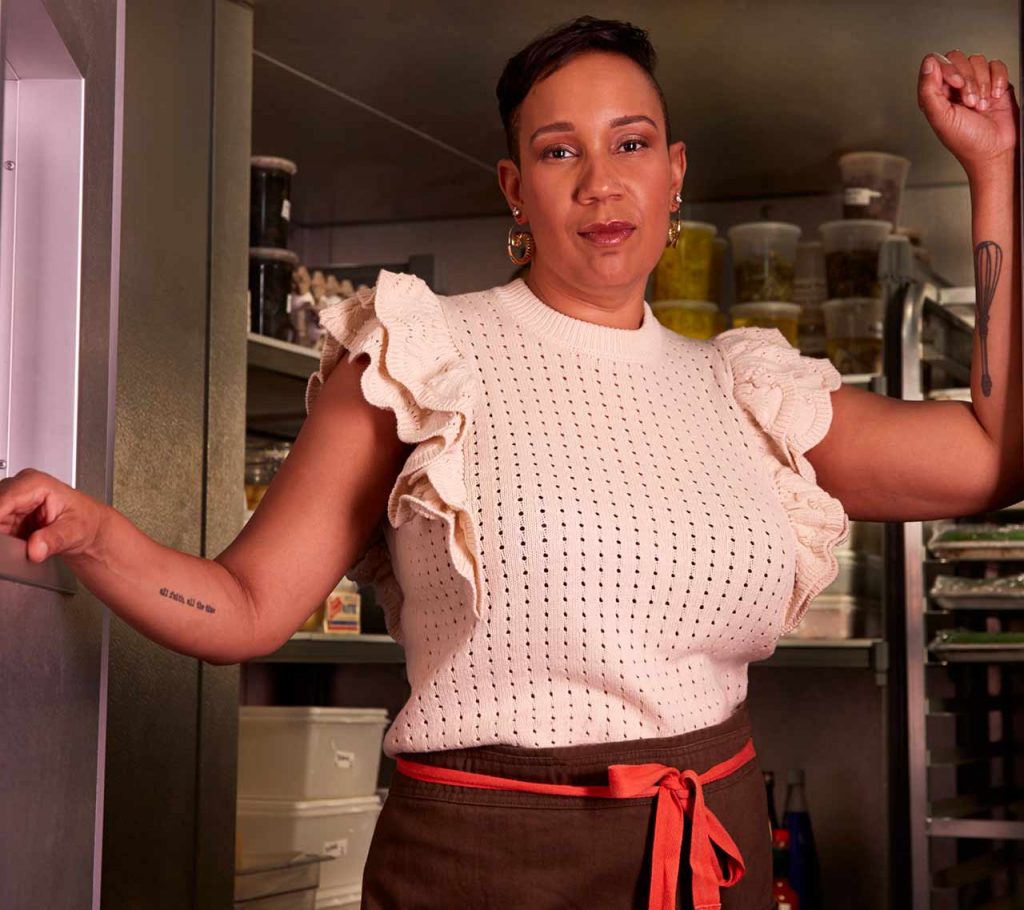
I never say, ‘I have cancer,’ because it’s not mine.
Elle Simone
I’m dealing with it.
In the same way that a complex dish is made up of distinct ingredients that blend together and bring out new flavors, Elle Simone’s life resembles something that could only come out of a Michelin-rated restaurant.
Elle is really something of a Renaissance woman. A lover of art and travel and people, this one-time social worker and cruise line cook, now celebrity chef, can also add social entrepreneur to her list of accomplishments. And to top it off, she is an ovarian cancer survivor and OCRA board member who is determined to use her platform to raise awareness about the disease.
But like any good meal, her story is best savored one bite at a time.
“I love learning, but I never loved school.”
Elle grew up in Detroit, hoping one day to join the Peace Corps. Her mother was not keen on sending her only child around the world, and as someone who worked in social services, introduced her daughter to volunteering locally. Elle worked as a camp counselor and with other youth programs, mentoring kids not much younger than herself. She grew up to become a social worker, until the recession in the early 2000’s forced her to make a shift in her career.
“I was in my late 20’s and had an opportunity to kind of reinvent myself. When I found myself at my lowest point in life,” said Elle, laughing as she looked back on her trajectory, “I decided to move to the most expensive city in the world.”
If she can make it there
It’s the typical New York story: find a job in a restaurant. Even as a social worker, Elle had been working front-of-the-house in restaurants. “Hospitality was always my second love,” she said.
While working for the Darden Corporation, which at the time included Red Lobster, Olive Garden and other establishments, one of their restaurants was short a cook. After several months of convincing her managers, she was able to fill some hours as a prep cook.
“That was my first time on the line, and I was like ‘I love this!’ My heart was racing, the pace was fast,” Elle said, “and I knew it was for me.”
But it was hard to live on that salary, so Elle found a job as an entry level cook on a cruise ship and ended up sailing around Hawaii for two years. She was cooking 14 hours a day, but she had friends from all over the world and, as she pointed out, “it’s exhausting, but you’re in Hawaii, so who cares?”
Learning on the job
Working in a professional kitchen is not easy. But Elle was extremely fortunate that her early days in the business were positive ones.
“I had the privilege of being managed by some young Black male sous chefs who were really amazing teachers and mentors,” she said. “They were like brothers who encouraged me and made me feel safe.”
And yet, Elle deeply resonates with those whose experiences in the culinary world were not as comfortable or supportive, and noted that they often look like her – a woman of color. And she experienced the same later on in her career. But, as she said, she didn’t stay in unhealthy environments long enough for it to affect her.
“As a social worker,” Elle explained, “I spent a lot of time teaching people how to navigate toxic spaces. So I’m empowered to make my decisions in a different sequence. By not getting my emotions involved immediately, I’m able to make quicker, more sound decisions.”
Moving into television
Elle went to culinary school and got an internship at The Food Network. She assumed that she would finish her schooling and go back to restaurants, but working on various shows, including Bobby Flay’s, was incredibly exciting and she was hooked. She found working in television offered its own type of adrenaline.
But Elle noticed something else. “It showed me how easy it is for voices to be muted in media,” she said. There’s lots of underrepresentation, and that made me curious because I went to culinary school with almost all Black individuals. So I’m like, ‘where is everybody?’”
The social worker in her couldn’t let it go. She began working with career services at her school and eventually started SheChef, a professional networking organization for women of color in the food, beverage and hospitality industry. They support each other through the challenges they face and SheChef connects people to the resources they need.
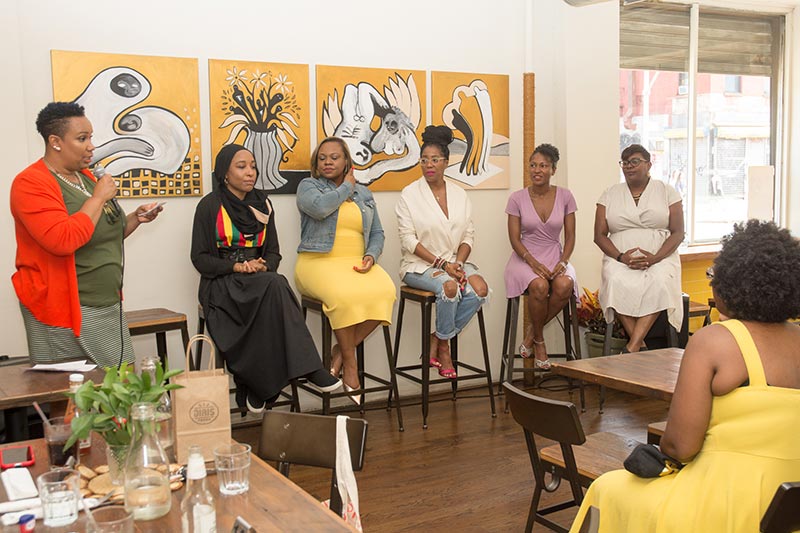
Her own platform
In 2016, Elle became the first Black woman to appear as a regular host on PBS’s America’s Test Kitchen, and added food stylist, podcast host (and will soon add cookbook author) to her already impressive resume.
“People say, ‘your life is great!’ and I’m like ‘I’m working,’” Elle said. “You go to work every day and I go to work every day. It just so happens that I really love my job.”
Being on television has given Elle a platform, and she has decided to use it to bring awareness to ovarian cancer. The decision was a personal one.
“I wanted to be a face for survivorship for Black women in ovarian cancer, or women of color in general,” she said.
Getting diagnosed while Black
Elle was living in New York City when she first developed symptoms. She thought it was GI problems, something not uncommon for chefs. But she eventually went to a gynecologist, considered by many to be among the best in Manhattan, to delve further.
“She was dismissive about my pain. She was dismissive about what I thought was going on with my body,” Elle said. “She didn’t give me the care I needed.”
Elle even went for an ultrasound that showed something on her right ovary, but the doctor never followed through.
It was a blessing that Elle got offered the job at America’s Test Kitchen, because it forced her to move to Boston, and find a new doctor when the symptoms persisted. She was referred to another OBGYN who sent her for an ultrasound that day, and within the hour, she got a call back. Within two weeks, she was in surgery and starting chemo.
Elle has a message for medical professionals: “Black women do not have a higher pain index. Our bodies are the same as any other person … believe Black women.”
Thoughts on ovarian cancer
Elle has another message for women everywhere: “Trust yourself and listen to your body. Get 5th and 6thopinions if you need to. Don’t ever take no for an answer as it relates to your body.”
Elle does not like to say she has cancer … “it’s not mine.” Instead, she describes it as something she’s dealing with. And right now, she’s dealing with a recurrence.
“There’s some real feelings around recurrences and we don’t talk about that enough,” she said. “Getting diagnosed a second time makes you feel insecure, almost like a failure a little bit, when none of it is in your control.”
But she learned something recently that has given her some hope: that ovarian cancer may be considered a chronic disease and not a terminal one. “That is a game changer,” Elle said.
Looking back, looking ahead
When asked if she could have imagined, back in 2008 when she had nothing, that one day she’d be a celebrity chef using her platform to educate the public on serious health matters, and using her social work skills to support women of color in her profession, Elle said, “I always knew I was different.”
“I don’t know if I really knew that I was destined for something great,” she said. “I still don’t know if I am. But I have always loved food. I’d do anything for food. I’d travel for food. I’d spend my last money on a good meal. ‘Will work for food’… that sign was meant for me.”
